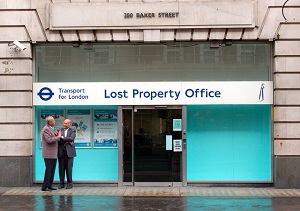You have no items in your cart. Want to get some nice things?
Go shoppingExcerpt from Madame Mephisto by A.M. Bakalar.

Urban Dictionary on Poland: A nation that is unaware of its own collective backwardness, to its utter tragedy. It works efficiently only under occupation and dictatorship. Xenophobic and nationalistic.
You don’t believe me? It gets better. Have you heard of a country where twin brothers rule, one the president, the other the prime minister? No? How about this one: the president dies in a plane crash, for which he was most probably responsible because he forced the pilot to land, killing himself, his wife, and ninety-four other people? Did I hear you right? You say it’s a conspiracy theory? Not so fast.
It is your country we are talking about.
But maybe you are right. It is all fucked up anyway.
[private]I am sorry, perhaps I shouldn’t swear. Not in front of you, at least. And we are going to a funeral in five days. But there is still time before we pay our respects.
You see, there are some things you should know about our country. And our family of course since, well, you and I are going to spend lots of time together. And I am not talking about those many hours before the last rites. Everybody is so busy with grieving and lamenting that they almost forget about you. You could say we have a lifetime ahead with each other.
What? Don’t look at me like that. There is nothing to be afraid of. You will learn to appreciate me. Oh, for Christ’s sake, don’t cry now! I am not a monster. But hold that thought. You see, my mother once said to me: ‘How can you be my daughter?’ A bit harsh, if you ask me, don’t you think?
If I were you I would listen to what I have to say in the coming days because I am doing you a favour. I like to think of it as a rescue operation. Oh no, I did not ask for it. Believe me, taking care of you is the last thing I need in my life. I had no choice. Nobody asked for my opinion.
This family! It’s so much easier to love each other from a distance.
So here we are now, you and I. We will see about the future later.
Anyway, we may as well spend this time we have together getting to know each other, or you getting to know me. Here in this room, in my parents’ house. Did you know that it was built in 1928? Of course not. How would you know? Mind you, it is a very solid construction unlike what they build these days. They moved to this house in the late 1990s from a block of flats we used to live in.
Are you comfortable? Good. I will place a pillow under your head.
Let me make it easier for you and lay down the options. You can listen to what I have to say and make up your own mind about whether you want to leave with me for London after the funeral. Or you can simply ignore it and get on with your life, here in this country I decided to leave a few years ago. But you should know that if you choose to stay I will not be able to help you because the family I left behind don’t exactly wish me well, and are not the kind of people I think you should stay with anyway. But we will get to that later.
Why am I saying this? Oh, because I am—well, how to put it? I guess you could call me a herbal purveyor. My clients call me a guardian angel, a lifesaver. Commonly known as a cannabis dealer if you insist on using the, in my opinion, outdated terminology. But this is not the only reason why my family is reluctant to welcome me back. I am a professional liar. I am two people. I take pleasure in experimenting with people’s emotions, people who trust me, putting their understanding of me in doubt.
Basically, I am the best thing that could have happened to you.
You see, I offer you a once in a lifetime chance to change your destiny. Learn from my mistakes. As I said earlier, I did not ask for it but since we have found ourselves in this situation we may as well use it as a business opportunity. Let’s say I have acquired enough and I am ready to share. And since I hate surprises I think it would only be fair to show you the whole picture.
As I was saying, I left the country a few years ago. It was 2004, and Poland joined the European Union. I felt no patriotic duty to stay. Living in Poland was a structured phase of my life. I had just spent four years working as a translator in a bank, right after I did my university degree in translation studies. It was a cover job.
You need to have a cover job if you don’t want to get caught. This is your first lesson. You should remember that. You see, I did not actually need to leave as I was already making good money, from dealing cannabis, of course, not as a translator. Growing and selling weed made me feel needed, appreciated, rewarded. Simply put, there is no comparison between working in an office and working as a cannabis grower.
After Poland joined the EU we, the young people, had such hopes, hopes for our own country. That things would get better from now on! There’s nothing better than being young and naïve, with no imminent danger of future responsibilities like parenthood, marriage, paying taxes—basically being a good citizen. Some call it contributing to society.
Trust me, it’s all bullshit.
Do you remember what I said about the twin brothers? Well, it was like the movie they starred in when they were 13. What was the title? Ah yes, The Two Who Stole the Moon, about two cruel and lazy boys who one day have an idea to steal the moon, which—in the story—is made of gold, so that they will not have to work any more. You see, those twin brothers later became two cruel politicians who, like the boys in the movie, had a vision of the glory of this country. Yes, you are right, unlike the boys in the movie, the brothers did have jobs—president and prime minister—but their paranoid ultra-nationalism and obsessive religiousness has turned our country into a place I can no longer call my home. It is not always about money, so I can’t complain. (Mind you, the UK has one of the largest cannabis markets.)
You see, in a way, the twin brothers made it so much easier for me to make this decision and leave. After Poland became a member of the EU I gave up on my homeland and devised a plan to retreat to London.
There was also the question of my family, or my mother to be precise, who I thought would be the main beneficiary of my absence. Don’t get impatient. We will get to the family. But first things first.
A cover job. Remember?
When I think about the first few years of my life in London, I admit that I was not ready to circulate amongst the Westerners. You must remember the years of communist propaganda did a good job of temporarily carving its way into my emotional system. Under the banners of the Polish United Workers’ Party to the victory of socialism! The Polish-Soviet friendship!
Bollocks.
Perhaps I did not smile as much as was expected of me during my first job interview in London, which unsurprisingly turned out to be a failure. I tried to be friendly and unthreatening. But smiling was something I had yet to master. No matter how much I wanted to escape from my birthplace, and find solace in inventing my new immigrant identity, I was forced to admit to myself that the essence of my being was formed where I came from. And where you and I come from a smile is a rare phenomenon, perhaps because of the turbulent history of our country, feeding fears and expectations directly to the heart of each Pole. Poles have a talent for lamenting, endlessly dissecting the events of the past.
While I was battling the crowds on Oxford Street, trying to squeeze my way towards the pedestrian crossing, I received a phone call from the little-known agency called Office Beasts that set up my first interview.
‘I’m sorry but you didn’t get the job.’
‘What?’ I said against the roaring noise of a double-decker bus passing in front of me.
‘It’s not that you don’t have the right experience. They really liked you. But they said, and please don’t feel bad about it, they said you’re too beautiful and they would have trouble working with you. We’ll find something else for you.’
‘Why don’t you send me where looks do matter?’ I asked, but it was unnecessary. Office Beasts never set up another interview and I didn’t know enough about political correctness to question what I had been told.
Of all the insecurities I brought with me—my imperfect command of English with a dominant Polish accent, my unprivileged non-Western education, and my lack of work experience—my face hardly made it to the list.
My first job interview in Poland had not gone well either, in fairness. With a degree in my hands I knocked on the door of the biggest bank. Ah, those were the days of the Celtic Tiger, and the Irish were investing in the Polish banks before anybody else in Western Europe realised that the countries of the former Soviet bloc would soon become goldmines of opportunity. McDonald’s had just opened its doors and we all queued for hours to taste the West. The new owners needed translators and interpreters, and I needed a cover job for my budding cannabis enterprise.
The president of the bank, a Polish man in his early sixties, looked at me with curiosity. Or was it my breasts he was staring at? I do not remember exactly.
‘When are you planning to get married and have children?’ he said.
‘I don’t.’
He laughed. ‘A young and beautiful woman like you will surely find a husband very quickly and we will lose a translator when you get pregnant.’
I came home that day and told my mother that I got a job because my boss liked my face and my breasts. She shrugged. ‘What’s wrong with that? You got the job,’ she said.
I admit my looks helped me in the past, but I did not come to London to face the same judgment.
Lesson number two: don’t underestimate your appearance. Learn about the market and your clients. I did not know it then, but in my line of work I can’t emphasise it enough. BPR—behaviour pattern recognition: never act as if you are carrying illicit substances. Who do you think the police are going to suspect first as a marijuana dealer: a woman wearing an impeccable suit who works in a well respected company, preferably in the City or Mayfair, or a black guy with the stink of weed about him? That’s right! You already have the answer. Image! Façade of trust and honesty. Your biggest asset is the fact you are an attractive woman. Use it! There is more to it than that, but for now that is all the information I am going to give you.
As I said earlier, I was not ready to work among the Westerners. After the first interview in London I cut my long blonde hair, much to my mother’s displeasure. According to her, it was throwing away the biggest asset that could make a difference among the possible suitors for my hand. Abnormal, was the word my mother used to describe me, and in the same breath she praised my twin sister’s sensibility. Alicja served as an example I should aspire to, with an established career as a corporate lawyer, and long hair accentuating her femininity, of course.
Polish women make good housewives; a two-course dinner is always ready on time, the house is scrubbed clean, the children are taken care of, and at night we transform into sexually insatiable goddesses. Making a career is the last of our worries, because it is the family, husband and children who always come first. Simply put, a Polish woman is one of the best deals on the matrimonial market.
Much to my mother’s disappointment, I yearned for a childless and marriage-free existence, whether in Poland or in England, and with the list of expectations relentlessly drummed into my head since I was a child at school and at home, I felt I had to escape my conventional predicted future. I was terrified by the prospect of ending up like my mother; a faithful and devoted housewife. It was not only how she groomed us at home when we were children: weaving ribbons into our plaited hair, buying colourful fabrics on the black market to sew skirts on the Singer sewing machine, knitting pullovers out of pink wool; my childhood was full of my mother’s commanding voice: ‘Don’t splash soup on your blouse’; ‘Stop laughing so loud’; ‘Sit straight with legs together, you are not in a barn.’
Don’t be surprised. My mother is the product of a strict Catholic upbringing. And I can tell you now that if you decide to stay here, she will get her hands on you before you know it.
Unfortunately, it did not end with my mother. At primary school, Alicja and I were taught to bake, knit, and make sandwiches, while the boys built birdhouses, learnt about car engines, and assembled radios. I, too, wanted to build birdhouses. At secondary school, my mother made sure Alicja and I attended classes on religion. Catholic religion—it is not like in the UK where you have a chance to learn about other denominations. Here you will learn only about sweet Jesus.
I say, forget about Jesus. There are so many gods to choose from.[/private]

About A. M. Bakalar
A. M. Bakalar was born and raised in Poland. She lived in Germany, France, Sicily and Canada before she moved to the UK in 2004. Her first novel, Madame Mephisto, was among readers’ recommendations for the Guardian First Book Award. She is the first Polish woman to publish a novel in English since Poland joined the EU in 2004. A. M. Bakalar lives with her partner—a drum and bass musician—in London. She is currently at work on her second novel.




